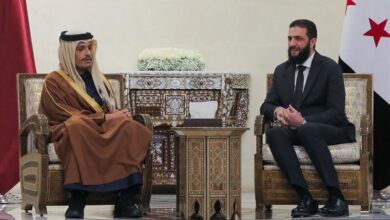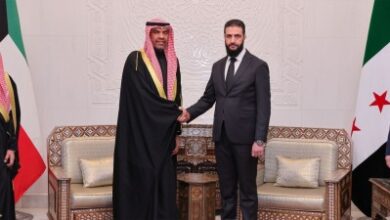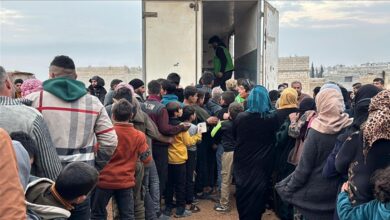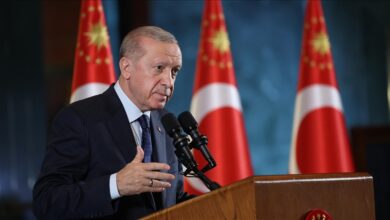
Russian efforts to undermine the mechanism of humanitarian aid entering Syria through Bab Al-Hawa crossing
Russia’s permanent representative to the United Nations, Vasily Nebenzia, recently announced that Moscow does not see a basis for maintaining the mechanism for transporting humanitarian aid to Syria across the border, after a period of its entry being restricted to one crossing in northern Syria.
“If we have to take a decision on extending the cross-border aid mechanism tomorrow, I think we will not find a basis for preserving it,” Nebenzia said during a session of the UN Security Council on Thursday. It is important for all those interested in extending the mechanism’s work to realize that time is short and we have to work a lot.
He added, “We will not be satisfied with partial measures.” He also called on to transfer humanitarian aid to Idlib through the territories controlled by the Assad regime forces, and not just across the borders, in an attempt to empower the Assad regime’s hand in the humanitarian aid file.
Nebenzia claimed that the mechanism of transporting aid across borders caused an unequal distribution of aid, which resulted in a high proportion of the population suffering from hunger in northwestern Syria, and he spoke that Russia has questions about how to distribute vaccines allocated by the United Nations.
The UN special envoy to Syria, Geir Pedersen, previously expressed his hope that the Irish and Norwegian efforts would succeed in preserving the only remaining aid corridor across the border to Syria from Turkey, referring to the Bab al-Hawa crossing.
Ireland and Norway were charged with the task of negotiating again with the UN Security Council countries to keep the Bab al-Hawa border crossing open as a transit point for humanitarian aid coming from Turkey to northwestern Syria.
On July 11, 2020, the UN Security Council adopted a resolution submitted by Germany and Belgium, according to which the UN cross-border aid mechanism was extended to Syria from one crossing on the Turkish border for a year, after Russia and China obstructed the council’s ratification of a another Belgian-German draft resolution, by extending the mechanism for the delivery of cross-border aid to Syria, for the second time within 4 days, forcing the two countries to amend it and provide it again.
Russia’s permanent representative to the United Nations, Vasily Nebenzia, recently announced that Moscow does not see a basis for maintaining the mechanism for transporting humanitarian aid to Syria across the border, after a period of its entry being restricted to one crossing in northern Syria.
“If we have to take a decision on extending the cross-border aid mechanism tomorrow, I think we will not find a basis for preserving it,” Nebenzia said during a session of the UN Security Council on Thursday. It is important for all those interested in extending the mechanism’s work to realize that time is short and we have to work a lot.
He added, “We will not be satisfied with partial measures.” He also called on to transfer humanitarian aid to Idlib through the territories controlled by the Assad regime forces, and not just across the borders, in an attempt to empower the Assad regime’s hand in the humanitarian aid file.
Nebenzia claimed that the mechanism of transporting aid across borders caused an unequal distribution of aid, which resulted in a high proportion of the population suffering from hunger in northwestern Syria, and he spoke that Russia has questions about how to distribute vaccines allocated by the United Nations.
The UN special envoy to Syria, Geir Pedersen, previously expressed his hope that the Irish and Norwegian efforts would succeed in preserving the only remaining aid corridor across the border to Syria from Turkey, referring to the Bab al-Hawa crossing.
Ireland and Norway were charged with the task of negotiating again with the UN Security Council countries to keep the Bab al-Hawa border crossing open as a transit point for humanitarian aid coming from Turkey to northwestern Syria.
On July 11, 2020, the UN Security Council adopted a resolution submitted by Germany and Belgium, according to which the UN cross-border aid mechanism was extended to Syria from one crossing on the Turkish border for a year, after Russia and China obstructed the council’s ratification of a another Belgian-German draft resolution, by extending the mechanism for the delivery of cross-border aid to Syria, for the second time within 4 days, forcing the two countries to amend it and provide it again.




